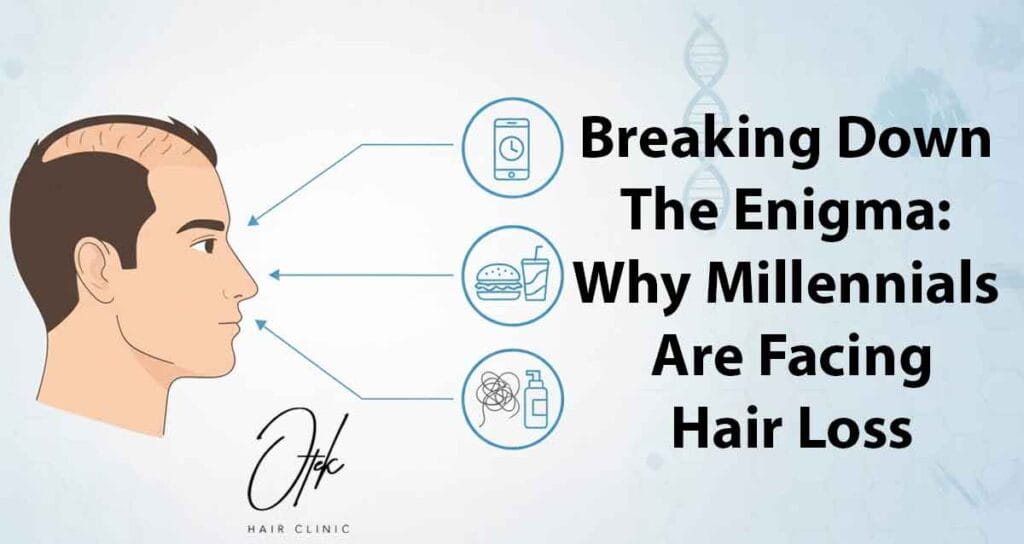In recent years, an increasing number of millennials have been facing a surprising and concerning issue – hair loss. The thick that once defined their youth are slowly but surely thinning, leaving many to wonder: why are millennials going bald? In this article, we’ll delve into some of the key factors contributing to this phenomenon, as well as explore potential solutions for those who find themselves on this unexpected journey.
1. Stress and Anxiety:
One of the leading culprits behind millennial hair loss is the high-stress lifestyle that many young adults lead. The pressure to succeed in a fast-paced world, combined with the ever-present digital age, has resulted in heightened stress and anxiety levels. Chronic stress can lead to hormonal imbalances that affect the hair growth cycle, ultimately causing hair to thin or fall out. Managing stress through mindfulness practices, regular exercise, and a balanced diet can help mitigate these effects.
2. Poor Nutrition:
The millennial generation often relies on fast food and convenience items, which may lack essential nutrients for healthy hair. A diet deficient in vitamins, minerals, and protein can weaken hair follicles and lead to hair loss. To combat this issue, millennials should focus on a balanced diet rich in vitamins like biotin, zinc, and iron, which promote hair growth and health.
3. Excessive Styling and Heat:
Millennials are known for their desire to express themselves through various hairstyles and hair treatments, such as dyeing, straightening, and curling. Unfortunately, these practices, along with excessive heat and chemical exposure, can damage the hair shaft, leading to breakage and hair loss. Opting for less damaging haircare practices and giving hair regular breaks from styling can help prevent further loss.
4. Genetic Predisposition:
Genetics play a significant role in hair loss, and if your family has a history of baldness, you may be more prone to it. Millennial hair loss could be a result of inherited genetic factors that affect hair follicles’ sensitivity to hormones.
5. Hormonal Changes:
Hormonal changes associated with aging and fluctuations in hormone levels can also affect hair growth. Millennial women may experience hair loss due to pregnancy, postpartum changes, or polycystic ovary syndrome (PCOS). Men may encounter a form of hair loss known as male pattern baldness, triggered by elevated dihydrotestosterone (DHT) levels. Consulting a healthcare provider is essential to address hormonal imbalances and explore treatment options.
6. Environmental Factors:
Environmental factors such as pollution, exposure to harmful chemicals, and UV radiation can harm the scalp and weaken hair. It’s essential to protect your hair from these factors by using suitable hair care products, wearing protective headgear, and maintaining a clean and healthy scalp.
In conclusion, millennials experiencing hair loss should consider the multiple factors contributing to this issue. Stress management, a nutritious diet, gentle hair care practices, genetics, hormonal changes, and environmental protection all play significant roles in the battle against hair loss.
Understanding why millennials are going bald is the first step toward addressing the issue. With proper self-care and consultation with healthcare professionals, millennials can work towards healthier, fuller hair and regain their confidence. Remember, you’re not alone in this journey, and there are solutions available to help you reclaim your vibrant locks.
Call Us Today for FREE Consultations
ASK A QUESTION

